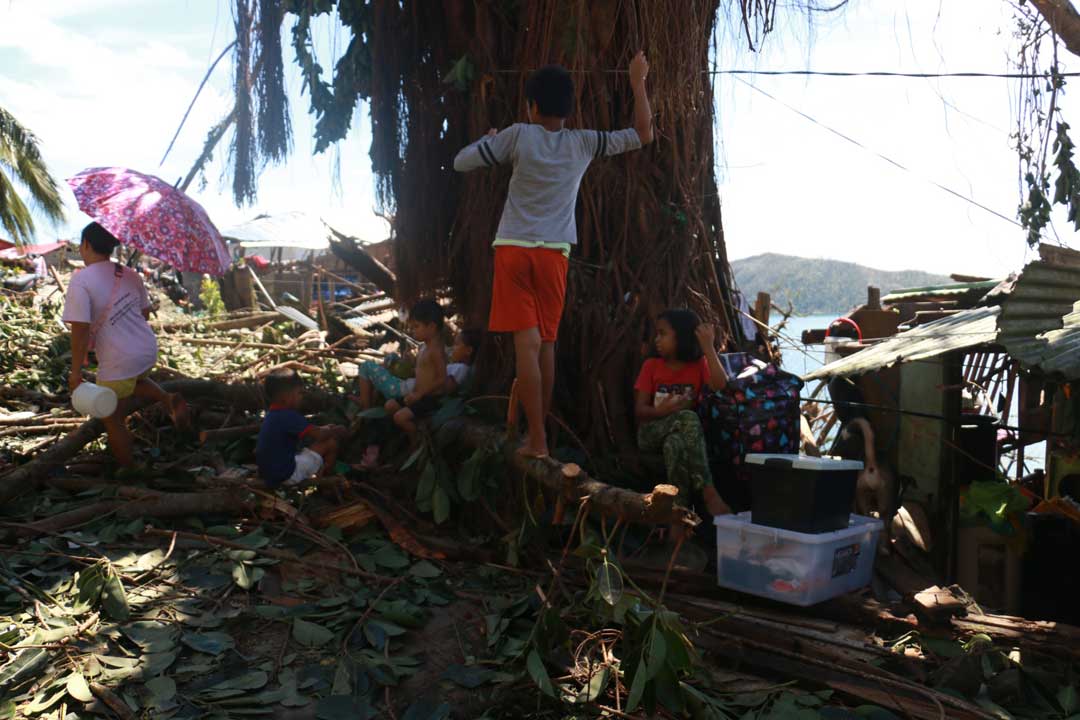
Medicine Cabinet
By Teodoro B. Padilla

Super Typhoon Odette (international name: Rai), the strongest typhoon to hit the country in 2021, affected an estimated 16 million people across the six worst-hit regions in Visayas and Mindanao. The typhoon displaced 631,000 individuals across 10 regions and left about 2.4 million people in dire need of assistance, according to the United Nations Office for the Coordination of Humanitarian Affairs (OCHA).
As of Dec. 30, the National Disaster Risk Reduction and Management Council (NDRRMC) put the official death toll at 397, 1,147 injured, and 83 missing. The number of casualties, injured and displaced people is expected to increase as debris clearing progresses, communication and electricity are re-established and isolated areas are reached.
The PHAPCares Foundation, the corporate social responsibility (CSR) arm of the Pharmaceutical and Healthcare Association of the Philippines (PHAP), is partnering with the Philippine Medical Association (PMA) to conduct joint relief operations in areas devastated by Odette. The PMA, under the leadership of its president Dr. Benito Atienza, will mobilize its vast network of physicians to provide access to healthcare for individuals in Visayas and Mindanao.
The PHAPCares Foundation, on the other hand, will augment the medicine supply of local government units in affected areas and provide relief items such as food packs, water, and hygiene kits to displaced individuals, which include the elderly, pregnant women and children. On top of the threat of coronavirus disease 2019 (COVID-19), the health of displaced individuals is also at risk due to the cold climate, limited food and water, unfavorable conditions in evacuation centers, lack of electricity, and the presence of hazardous debris.
“We are focusing on the health of our countrymen affected by the typhoon. Apart from the common health risks associated with disasters, families and individuals also need to be protected from COVID-19 infections. PHAPCares is collaborating with our partners so that we may mitigate the health impact of Odette on the people,” said PHAPCares Foundation Executive Director Dr. Rosarita Siasoco.
Apart from the PMA, PHAPCares is also partnering with Pasay-Parañaque Medical Society, the Philippine Naval Reserve Command and Cebu Pacific. Donations from PHAPCares Members Boehringer-Ingelheim and Otsuka have formed part of the initial Foundation response, while other companies have put forward pledges for the succeeding efforts.
In a study published in the International Journal of Emergency Medicine in 2017, super Typhoon Haiyan (locally known as Yolanda) caused both physical and mental health problems as well as social consequences for the survivors. Health professionals, the study added, reported worse overall health problems compared to other survivors. This highlights the importance of also looking after the welfare of frontliners deployed in disaster areas.
In general, health concerns following typhoons are skin infections, gastrointestinal illnesses, respiratory diseases, tetanus, leptospirosis and injuries. Animal and insect bites have also been reported following typhoons, especially in areas that received more rainfall than usual, the Centers for Disease Control and Prevention (CDC) said.
Eating and drinking anything contaminated by floodwater can also cause diarrheal disease including E. coli and Salmonella infections, added the CDC. Access to potable and clean water will be important even in the coming weeks ahead.
While the risk of COVID-19 in an evacuation center is lower for fully vaccinated individuals, everyone should still take necessary precautions. The CDC explained that transmission risk in temporary shelters is higher and may increase with the number of unvaccinated people present.
It is important for all people in the evacuation centers to follow protocols designed to protect everyone from COVID-19. While challenging to do in post-disaster settings, the people must continue wearing masks correctly, maintaining physical distance, washing hands with clean water, and covering coughs and sneezes. Individuals who are sick or who have started getting sick must immediately inform the health teams assigned in the evacuation centers.
Established in 2003, the PHAPCares Foundation is dedicated to promoting public health and welfare in the country, particularly among underprivileged and marginalized Filipinos, as well as those impacted by natural and man-made calamities and conflicts. Through the Foundation’s Operation Quick Response (Emergency and Disaster Response), PHAP member companies donate essential and life-saving medicines for the benefit of victims of natural calamities and for communities displaced by armed conflicts.
The PHAPCares Foundation also provides medicines to help avert or manage epidemics and other health-related consequences of disasters. Since its founding, the Foundation has donated about P1 billion in medicine and financial assistance to Filipinos disadvantaged by sickness, poverty, conflicts, and disasters.
Teodoro B. Padilla is the executive director of Pharmaceutical and Healthcare Association of the Philippines (PHAP), which represents the biopharmaceutical medicines and vaccines industry in the country. Its members are at the forefront of research and development efforts for COVID-19 and other diseases that affect Filipinos.